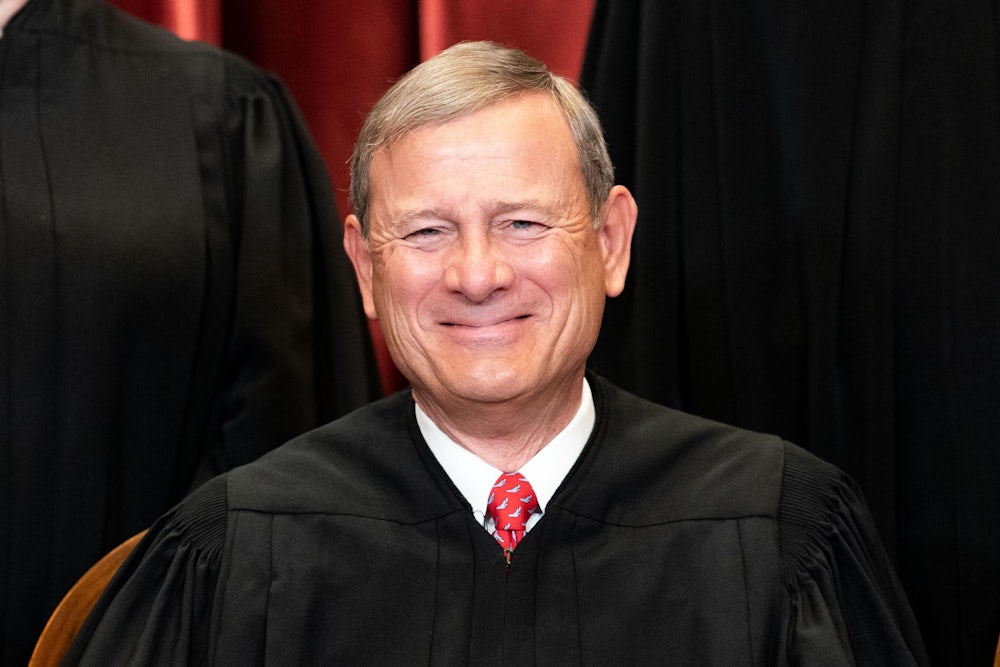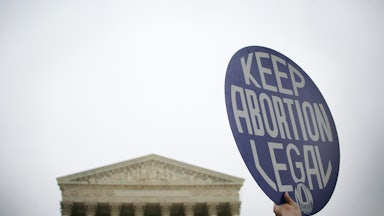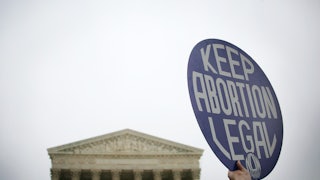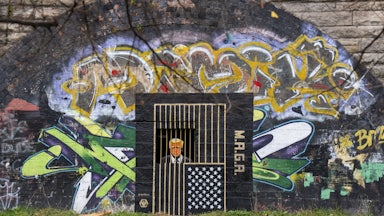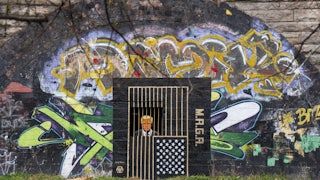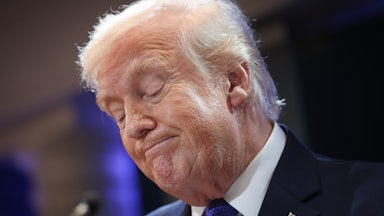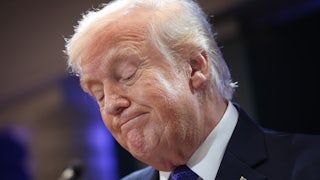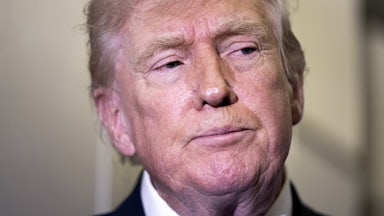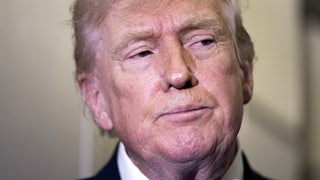Eight months ago, when Samuel Alito’s draft opinion in Dobbs v. Jackson Women’s Health Organization leaked—an unprecedented event for a historically tight-lipped Supreme Court—Chief Justice John Roberts described the event as “absolutely appalling” and a “singular and egregious breach of trust.” Roberts’s opinion was widely shared: The conclusion at the time was that trust within the court had been irrevocably shattered by the disclosure of the Roe-overturning decision. There were even calls, mainly on the political right, to jail not only the leaker but the Politico reporters who obtained the draft and broke the story. An investigation was quickly ordered to uncover the truth and, it went without saying, restore order and trust to a shaken court.
With something of a thud, that report finally dropped on Thursday. Despite all of the histrionic talk last May—Clarence Thomas, for example, called the leak an “infidelity”—the report makes it abundantly clear that the Supreme Court was not, in the end, particularly interested in finding out who leaked Alito’s draft. The robustness of the investigation hardly matched the intensity that members of the court demonstrated in the leak’s immediate aftermath; it’s hard to conclude that the probe was as far-reaching as the initial emergency demanded.
The sleuthing that’s gone into identifying the Supreme Court leaker appears a little . . . thin. https://t.co/9WovtbqOb7 pic.twitter.com/a8HsBGOK62
— Cristian Farias (@cristianafarias) January 13, 2023
As Slate’s Dahlia Lithwick summed up, “Somehow, an unprecedented act of terrible violence and betrayal done to the judiciary and the country wasn’t solved because … either nobody really wanted it solved, or it’s truly the Loch Ness Monster of our time. Basically, I don’t think the court wants us to know who did it. And I’m actually no longer certain the justices want to know themselves.” The justices themselves were not investigated, nor were their family members, despite being logical vectors of the leak. In total, 82 court employees with access to the draft were questioned in seemingly Chief Wiggum–like fashion. Search histories were looked at, as were call logs, but nothing turned up.
This was at once an intrusive investigation—again, more than 80 employees of the court had to hand over search histories and phone records—and a half-assed one. Most importantly, however, it was an unsuccessful leak investigation. And while many are left to carp about the lack of conclusions or quip winkingly that maybe those who did the investigating perhaps didn’t really want it to succeed in the first place, here’s the truth: The best leak investigations are unsuccessful ones. As journalists, we shouldn’t want them to succeed.
“Who dropped the draft?” will undoubtedly continue to be one of the Beltway’s great unsolved mysteries. It certainly doesn’t approach Deep Throat–level significance—it’s not as consequential, for one thing; for another, there isn’t a fun nickname—but the blank space at the center of the story will persist. Much of the furor over the leak can be chalked up to partisanship—those on the right have continually insisted that the leaker must be someone of the opposite political persuasion, and vice versa.
The right has, as you might expect, taken this to fascistic extremes: as is so often the case, the most flamboyantly authoritarian voice in the mix being—who else?—Donald Trump, who has called for the reporters who broke the story, as well as their editors and employers, to be jailed. (Some, meanwhile, are convinced that it was Alito who leaked the opinion, perhaps as a means of ousting a chief justice who has been deemed insufficiently dogmatic.)
On the left, meanwhile, speculation has swirled around Justices Samuel Alito and Clarence Thomas, with the assumption being that the opinion was leaked as a means of pressuring the court to release a stricter ruling than some justices—presumed to be either Brett Kavanaugh or Roberts—may have been comfortable with. For now, it seems like these assumptions will remain frozen in amber; we may never know who leaked the decision or why it was leaked.
That’s a good thing. The dramatic rise of leak investigations—and the prosecutions of leakers—has been one of the worst recent developments in American politics, which is no small achievement given how many terrible developments American politics has yielded in recent years. It has been a bipartisan phenomenon as well. The Obama administration’s hunt for leakers was rightly decried by the Committee to Protect Journalists as “the most aggressive … since the Nixon administration,” by former Washington Post executive editor Leonard Downie.
The Obama White House’s devotion to pursuing leakers and the journalists responsible for breaking stories based on leaks degraded norms and paved the way for the authoritarian excesses of the Trump era. Trump’s own efforts to curtail leakers have been better documented—and his calls for the jailing of members of the press are particularly disgusting—but they built on his predecessor’s efforts. Trump has repeatedly pushed for a multifront war on the press, including prison sentences for journalists deemed to have reported on classified information—something rich in irony given his own long history of mishandling such information.
Leak investigations are bad for journalism, and they’re bad for the public interest. They’re aimed at curtailing crucial reporting on the inner workings of the government and other powerful entities, as well as preventing the public from discovering controversial and often illegal actions taken by officials. The Biden administration has thus far been less zealous in these pursuits—Biden did condemn Trump’s demand that journalists be arrested as part of the investigation into the Dobbs leak—but it hasn’t done much to ensure that future administrations will not return to using the power of the state to attack the free press. For the moment, however, the failure of the Supreme Court investigation should be celebrated. Hopefully, future leak investigations will be just as ineptly managed.
